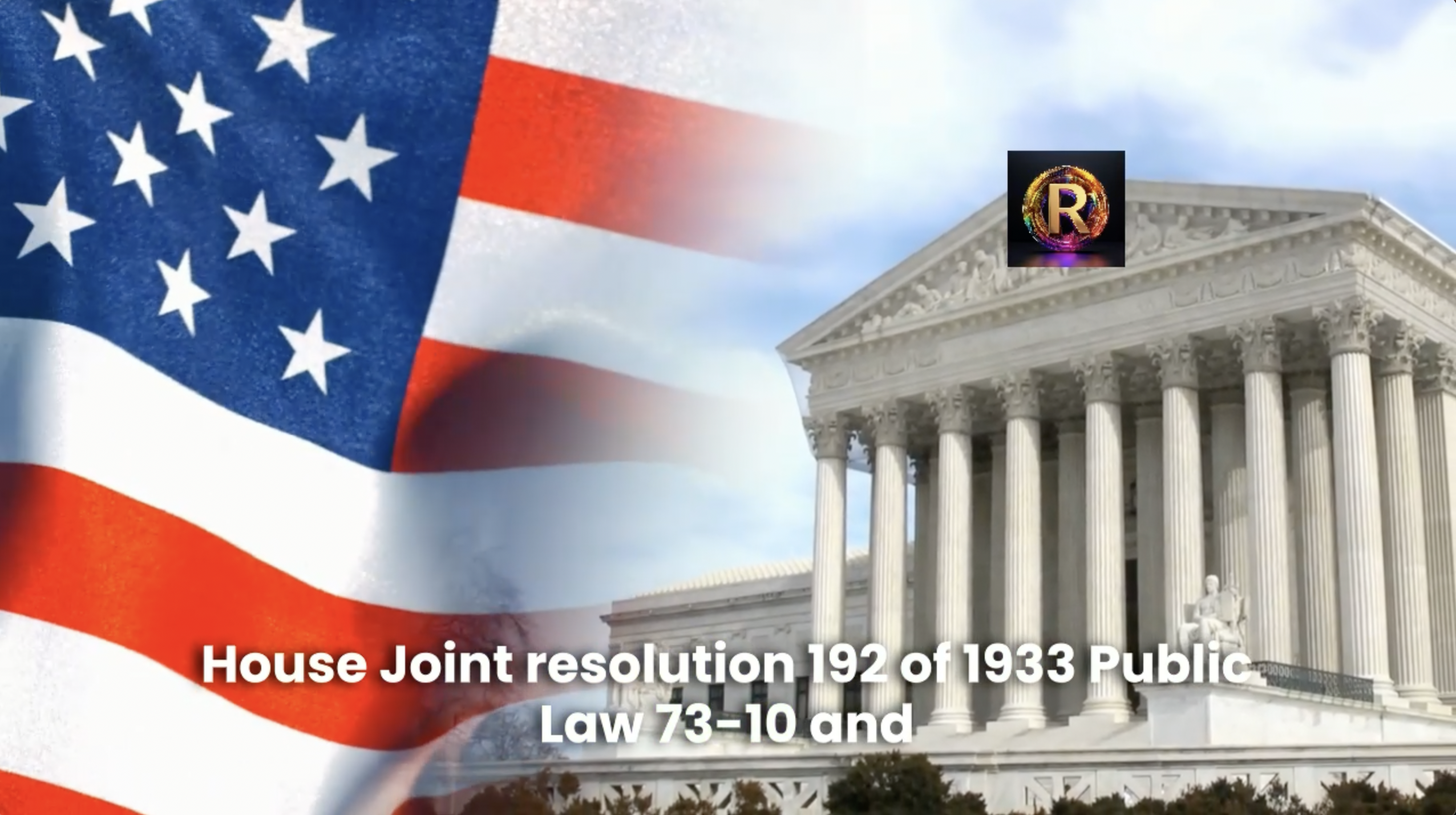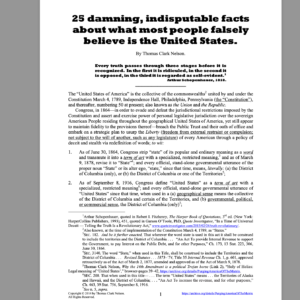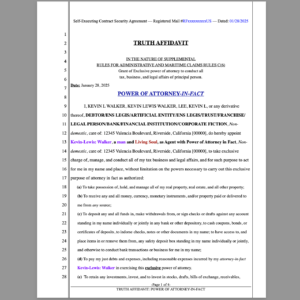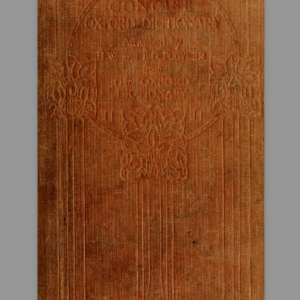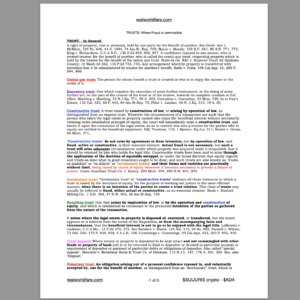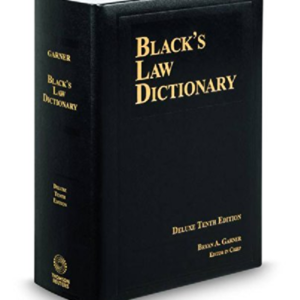House Joint Resolution 192 of 1933 Public Law 73-10 and the Removal of Gold from America: a long time ago, back in 1933, the government had a big money problem. They couldn’t pay their bills, so they declared bankruptcy. To fix things, they created new rules. One of these was called Executive Order 6102, which made “U.S. citizens” turn in their gold coins and bars. In exchange, they received paper money called Federal Reserve Notes. But here’s the key part: this rule only applied to “U.S. citizens,” not to private citizens who knew they were different from that legal status.
Most people didn’t know the difference between the public and private sides of the law, so they unknowingly volunteered to give up their gold. By not understanding the difference, they became their ens legis, also known as their “straw man” “U.S. citizen,” or “trust,” or “bank,” or “corporation,” or “individual.” It is the fake version of themselves whether they consciously know it or know. The “U.S. citizen” is a “legal person” and a fiction—an entity. By volunteering to turn in their gold, these people also agreed to use Federal Reserve Notes instead of “lawful money,” which is gold and silver-backed. They entered into a contract without even realizing it, and contract is law and enforceable.
Once all the gold was collected, it was removed from circulation, and the country was taken off the “gold standard.” This meant that gold no longer backed up the money people used. With the gold gone, the government could only offer paper money as promises, not real money. That’s where House Joint Resolution (HJR) 192 of June 5, 1933, Public Law 73-10 came in. This law made it illegal for anyone to demand payment in a specific currency or coin. It stated:
“Every provision contained in or made with respect to any obligation which purports to give the obligee a right to require payment in gold or a particular kind of coin or currency, or in an amount of money of the United States measured thereby, is declared to be against public policy, and no such provision shall be contained in or made with respect to any obligation hereafter incurred.”
This meant that all debts would be discharged dollar for dollar, using whatever “currency” was legal tender at the time, since there was no real money anymore. That includes bills of exchange, banker’s acceptances, indorsements, trade acceptances, bonds stamps, money orders, notes, and more. Everything became part of a commercial system based on trading promises, and the government’s promises (Federal Reserve Notes) were the new currency.
What are the promises backed by?
You, all of your assets, all your labor, your future labor, and the labor of your children, and every descendent of your to come.
The law further explicitly stipulated that 18 U.S. Code § 8 defines an “obligation or other security of the United States” as including all sorts of paper like bonds, Federal Reserve notes, Treasury notes, and checks. The code specifically states: “The term ‘obligation or other security of the United States’ includes all bonds, certificates of indebtedness, national bank currency, Federal Reserve notes, Federal Reserve bank notes, coupons, United States notes, Treasury notes, gold certificates, silver certificates, fractional notes, certificates of deposit, bills, checks, or drafts for money, drawn by or upon authorized officers of the United States, stamps and other representatives of value, of whatever denomination, issued under any Act of Congress, and canceled United States stamps.”
When a company send you a “bill” in the mail, that is technically the obligation of the “United States” given they are holding all of your assets and have not provided you with any “lawful money” of substance, backed by gold and silver. They, the government/a federal corporation, are holding all of the assets.
He who has the gold, pays the bill, or provides an exemption or remedy.
Indorsing the “negotiable instrument” and returning to the sender for settlement and satisfaction of any “obligation” is a valid “tender of payment” an discharges any related obligation and/or debt.
Furthermore, U.C.C. § 3-311 and 3-603 expressly stipulates there is discharge if payment is refused or simply delivered with a statement indicating the tender of payment was delivered in “full satisfaction.”
For those that have the eyes and intelligence and will to see, it is obvious the law supports that engaging in “commerce” within the United States and demanding payments in a specific currency, is illegal and against public policy.
The Gold Reserve Act of 1934 further enforced this, declaring that any obligation requiring payment in gold was against public policy. It stated: “(a) every provision contained in or made with respect to any obligation which purports to give the obligee a right to require payment in gold or a particular kind of coin or currency of the United States, or in an amount in money of the United States measured thereby, is declared to be against public policy. (b) Every obligation, heretofore or hereafter incurred, shall be discharged upon payment, dollar for dollar, in any coin or currency which at the time of payment is legal tender for public and private debts.”
Another important resolution, House Joint Resolution 348 Public Resolution, Number 63, declared that provisions known as “gold clauses” were against public policy. It prohibited their use in future obligations and ensured that all types of legal tender issued by the United States, whether backed by gold or not, would be treated equally as payment for debts. It also provided that the government would continue to pay all its debts in lawful money, dollar for dollar. It explained: “the lawful holder of the coins or currencies of the United States shall be entitled to exchange them, dollar for dollar, for other coins or currencies which may be lawfully acquired and are legal tender for public and private debts.”
In line with this, Article 1, Section 10 of the Constitution states: “No State shall enter into any Treaty, Alliance, or Confederation; grant Letters of Marque and Reprisal; coin Money; emit Bills of Credit; make any Thing but gold and silver Coin a Tender in Payment of Debts; pass any Bill of Attainder, ex post facto Law, or Law impairing the Obligation of Contracts, or grant any Title of Nobility.”
This highlights that the only lawful money the States can use is gold and silver. However, since all the gold was taken away, people ended up using Federal Reserve Notes, a private paper ‘currency” aka “medium of exchange” backed by the government’s promises, and collateralized by assets Americans pledge by way of their “U.S. citizen,” instead of real assets.
Because most people didn’t understand the private and public sides of the law, they unknowingly merged themselves with the fake creation “U.S. citizen” status, becoming legally tied to the obligations of this fake identity. By doing so, they allowed themselves to be used as collateral, paying off the government’s debts with their labor, time, and sometimes even their freedom.
Additionally, the government holds title to everything—cars, homes, and even some personal items. What people think they own is actually held by the government as a way to secure the Nation’s debts. The Nation being the “federal corporation” called the “United States” that is not the same thing as the “united states of America.”
This setup shows how everything in the public world is pledged as security for debts, and the commercial system operates entirely on these pledges.
Summary
To sum up, all debts today are just contracts and authorizations based on promises, not real money. HJR 192 of 1933, Public Law 73-10, and other laws confirm that the government is required to discharge debts dollar for dollar since there’s no gold or real money backing the currency anymore. However, the system relies on people not knowing this difference, and if they don’t, they get merged with their “U.S. citizen” status and are made to pay these debts.
To change this, people must understand the difference between their private rights and the public obligations tied to the “U.S. citizen” status. Only by reclaiming their private status and protecting their rights can they avoid becoming part of a system where their time, labor, and freedom are pledged as collateral for government debts.
